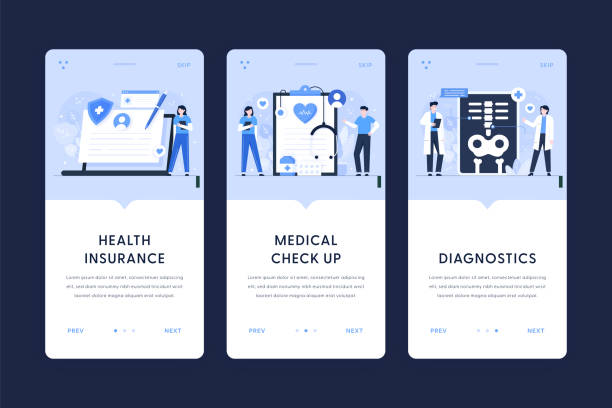
How to Get Health Insurance for Small Businesses in Virginia

Securing health insurance for your small business in Virginia can be a critical step toward attracting and retaining talent while ensuring that your employees remain healthy and productive. The health insurance landscape can be complex, but by understanding the basics and working with the right partners, small business owners can find coverage that fits both their budget and their workforce's needs.
Step 1: Understand Virginia's Health Insurance Requirements
Before diving into your options, it’s important to know Virginia's health insurance regulations for small businesses. Under the Affordable Care Act (ACA), small businesses with 50 or fewer full-time equivalent employees are not required to provide insurance. However, if you have more than 50 employees, you are obligated to offer health insurance or face potential penalties.
That said, providing health insurance for your small business in Virginia, even if it’s not required, can help you attract top talent, reduce employee turnover, and potentially qualify for tax credits under the Small Business Health Options Program (SHOP).
Step 2: Determine Your Budget
The next component is designing how much money the business can set to cover the expenses of health insurance. Group insurance premiums can rise and fall based on the plan and coverage selected and depending on the number of employees enrolled.
As a small business owner, you have several options:
-
Employer-Sponsored Premiums: Usually, organizations contribute say 50% of the monthly premiums for their employees while the employee is expected to contribute the other 50%. The average company contribution in Virginia is found to vary between 50 percent and 80 percent of the premium cost.
-
Tax Incentives: If your business is eligible for SHOP, there are tax credits which you maybe able to use to lower the amount of premiums you pay. Eligible for these credits are business organizations that employ less than 25 individuals, and earn less than $50,000 per year.
Understanding your budgetary capacity will ensure a refine search when deciding on the particular insurance to purchase.
Step 3: Research Health Insurance Options
In Virginia, small businesses have several options for providing health insurance to their employees:
1. SHOP Marketplace
The SHOP is an online marketplace for small businesses to purchase health insurance for their employees affordably. Again, through the Virginias SHOP marketplace, employers with up to 50 employees have an opportunity to develop a competitive health plan that suits their needs and pocket.
Should you opt for SHOP, then you can enjoy tax credits to help you cover the costs of the premiums. ACA SHOP plans, as do individual ACA plans, must include preventive care, emergency services, and hospitalization in their coverage. Visit this site for reference.
2. Private Insurance Providers
The majority of companies in Virginia select health insurance provided by third parties. If you directly deal with private insurers, you can get exposed to types of plans such as HMO, PPO, and HDHP. Such plans are generally costlier for the individuals, but there are more flexible concerning the chosen network options and coverage levels than the government-sustained programs are.
3. Professional Employer Organizations (PEOs)
For small businesses looking to reduce administrative burdens, a Professional Employer Organization (PEO) might be an attractive option. PEOs allow small businesses to pool their employees together with other businesses to obtain health insurance at group rates, often resulting in lower costs and more coverage options.
Step 4: Find a Broker or Agent
Navigating health insurance options can be overwhelming, so working with a licensed insurance broker or agent in Virginia can be invaluable. Brokers understand the complexities of insurance regulations and can help you compare various plans, ensuring you find the best fit for your business.
Here’s what a broker can do for you:
-
Help you compare quotes from different providers
-
Explain complex terms and coverage options
-
Assist with employee enrollment
-
Ensure your plan complies with both state and federal regulations
It’s important to note that brokers are compensated by insurance carriers, meaning their services are often free for small business owners. Working with a broker can save time and provide peace of mind that you're choosing the best plan for your employees.

Step 5: Enroll and Review Annually
After selecting your plan, you’ll need to complete the enrollment process. Many insurance providers, whether through SHOP or private insurers, offer online enrollment options to streamline the process. Be sure to gather the necessary employee information, including dependents, to ensure a smooth enrollment experience.
Finally, make sure to review your insurance coverage annually. As your business grows or your employees' needs change, you may want to adjust your insurance plans accordingly. Staying proactive with your health insurance review will ensure that you continue to offer competitive benefits while managing costs effectively.
Conclusion
Securing health insurance for your small business in Virginia doesn’t have to be a daunting process. By understanding your legal obligations, budgeting accordingly, and working with a knowledgeable broker, you can find the right plan for your business. Offering this insurance not only protects your employees but also strengthens your business by helping to attract and retain top talent in a competitive market. With the right guidance, you can navigate Virginia’s medical insurance options and provide a valuable benefit that supports both your employees and your bottom line.

